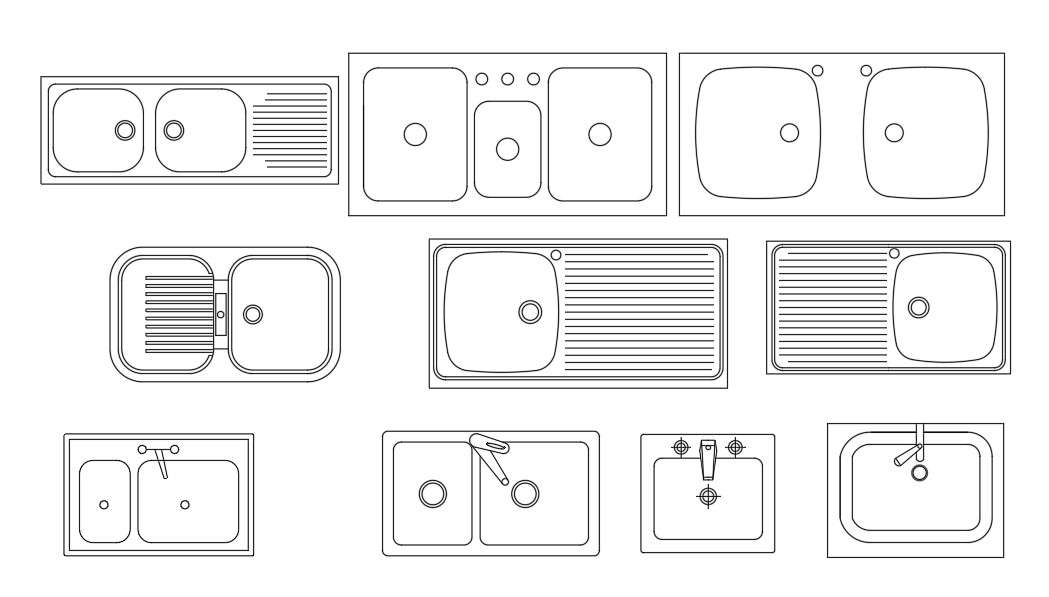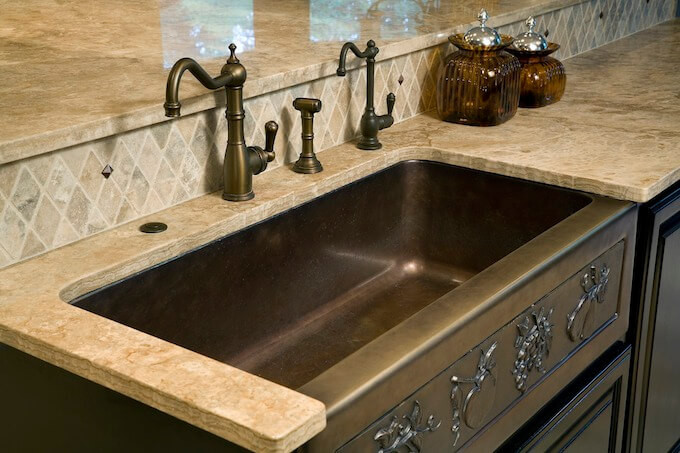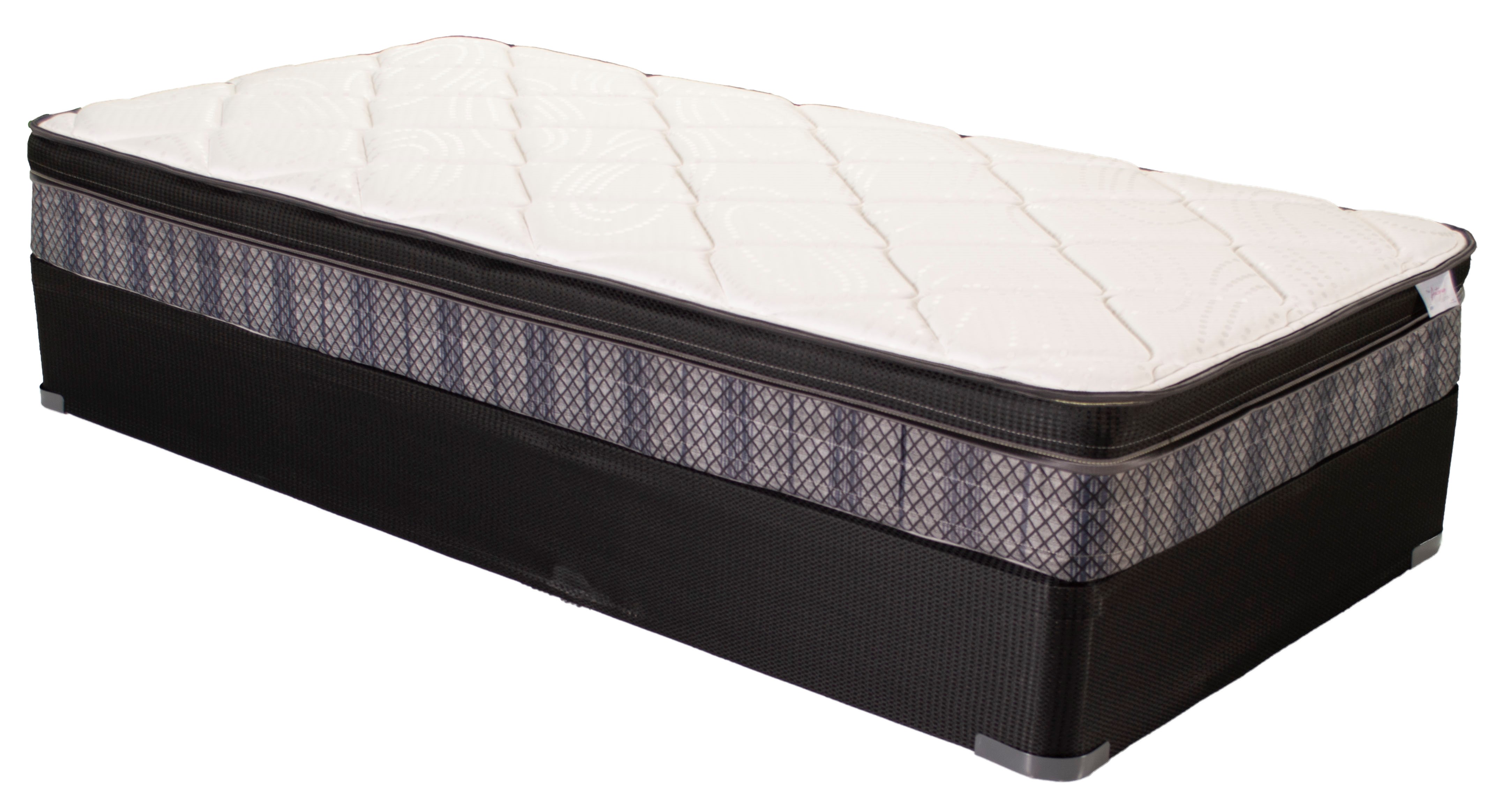Stainless steel is a popular material for kitchen sinks due to its durability, resistance to stains and scratches, and easy maintenance. When it comes to choosing the right gauge of stainless steel for your kitchen sink, there are a few factors to consider. First, what exactly is a gauge? Gauge refers to the thickness of the steel used to make the sink. The lower the gauge number, the thicker the steel. For example, an 18-gauge sink is thicker and more durable than a 22-gauge sink. So, what is the best gauge for a kitchen sink? The answer to this question depends on your personal preferences and needs. However, there are some commonly recommended gauges for kitchen sinks that we will explore in this article.1. Stainless Steel Gauge for Kitchen Sink
16 Gauge: This is the thickest and most durable gauge for stainless steel kitchen sinks. It is more expensive than other gauges, but it offers superior strength and resistance to dents and scratches. If you use your sink frequently or have a heavy-duty kitchen, a 16-gauge sink may be the best option for you. 18 Gauge: This is the standard gauge for most stainless steel kitchen sinks. It offers a good balance between durability and cost. An 18-gauge sink is strong enough to withstand daily use and is a popular choice for both residential and commercial kitchens. 20 Gauge: This is a thinner and less expensive option for a stainless steel kitchen sink. It is still a durable choice, but it may be more prone to dents and scratches compared to thicker gauges. A 20-gauge sink is suitable for light to moderate use kitchens. 22 Gauge: This is the thinnest and least expensive gauge for stainless steel kitchen sinks. It is not as strong as other gauges and may be more prone to dents and scratches. A 22-gauge sink is best for light use kitchens or as a secondary sink in a busy kitchen.2. Choosing the Right Gauge for Your Kitchen Sink
So, which gauge is the best for a kitchen sink? The answer depends on your specific needs and budget. As mentioned, a 16-gauge sink offers the most durability, but it also comes with a higher price tag. An 18-gauge sink is a good middle ground for most kitchens, offering a balance between strength and cost. However, if you are on a tight budget or have a light use kitchen, a 20 or 22-gauge sink may be a suitable option. It is important to note that the gauge is not the only factor that determines the quality of a kitchen sink. The manufacturing process, type of steel used, and overall design also play a role in the sink's durability and performance.3. Best Gauge for a Kitchen Sink
The standard gauge for most stainless steel kitchen sinks is 18 gauge. This gauge is commonly used because it offers a good balance between strength and cost. It is also suitable for most kitchen tasks and everyday use. However, some higher-end sinks may use 16-gauge steel for added durability and strength. It is always important to check the gauge of a sink before purchasing to ensure it meets your specific needs.4. What is the Standard Gauge for a Kitchen Sink?
It is important to note that gauge and thickness are not the same things when it comes to kitchen sinks. While gauge refers to the steel's thickness, thickness refers to the overall depth of the sink bowl. The thickness of a sink bowl is a personal preference and does not affect the sink's durability. However, a thicker bowl may offer more space for larger dishes and make the sink feel more sturdy.5. Gauge vs. Thickness for Kitchen Sinks
Now that you know the different gauges of steel used for kitchen sinks, it is important to understand how it can affect the sink's performance. A thicker gauge will be more resistant to dents and scratches, making it suitable for heavy-duty use. Thinner gauges may be more prone to these types of damage but can still function well in light use kitchens. Another factor to consider is the noise level. Thicker gauges tend to be quieter since they absorb more sound, while thinner gauges may produce more noise when dishes and utensils are dropped into the sink.6. Understanding the Gauge of Steel for Kitchen Sinks
If you are unsure about the gauge of your current kitchen sink, there are a few ways to determine it. First, you can look for the manufacturer's label on the sink, which may indicate the gauge. Alternatively, you can use a caliper or ruler to measure the thickness of the sink's steel. If all else fails, you can also consult a professional plumber or kitchen designer for assistance in determining the gauge of your sink.7. How to Determine the Gauge of Your Kitchen Sink
Let's compare the different gauges of steel for kitchen sinks in a table for a quick reference:8. Comparing Different Gauges of Steel for Kitchen Sinks
While the gauge is not the only factor to consider when choosing a kitchen sink, it is an important one. The gauge affects the sink's durability, resistance to damage, and noise level, so it is crucial to choose wisely. Consider your budget, kitchen's use, and personal preferences when deciding on the best gauge for your kitchen sink. Remember, a higher gauge does not necessarily mean a better sink, but it may offer more durability and longevity.9. The Importance of Gauge in Choosing a Kitchen Sink
To summarize, here are some tips to keep in mind when selecting the right gauge for your kitchen sink: - Consider your budget and the level of use in your kitchen. - Thicker gauges offer more durability but come at a higher price. - Thinner gauges may be more prone to dents and scratches but are suitable for light use kitchens. - Don't forget to also consider the manufacturing process, type of steel used, and overall design of the sink. - Consult a professional if you are unsure about the gauge of your current sink. By following these tips and considering the information provided in this article, you can confidently choose the right gauge of steel for your kitchen sink. Remember, a high-quality sink is an investment in your kitchen, so choose wisely to ensure it meets your needs and lasts for years to come.10. Tips for Selecting the Right Gauge for Your Kitchen Sink
The Importance of Choosing the Right Gauge of Steel for Your Kitchen Sink

Understanding the Basics of Gauge Measurement
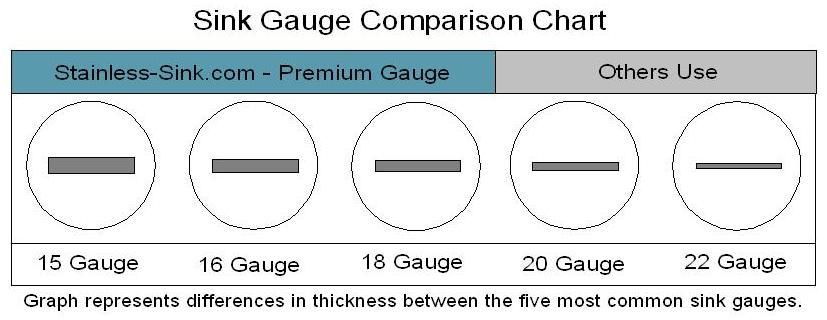 When it comes to choosing the right material for your kitchen sink, one of the most important factors to consider is the
gauge of steel
used. But what exactly does gauge mean? In simple terms, gauge is a measurement of thickness. In the case of stainless steel sinks, the lower the gauge number, the thicker the steel. This means that a 16-gauge sink is thicker and more durable than an 18-gauge sink.
When it comes to choosing the right material for your kitchen sink, one of the most important factors to consider is the
gauge of steel
used. But what exactly does gauge mean? In simple terms, gauge is a measurement of thickness. In the case of stainless steel sinks, the lower the gauge number, the thicker the steel. This means that a 16-gauge sink is thicker and more durable than an 18-gauge sink.
The Advantages of a Thicker Gauge
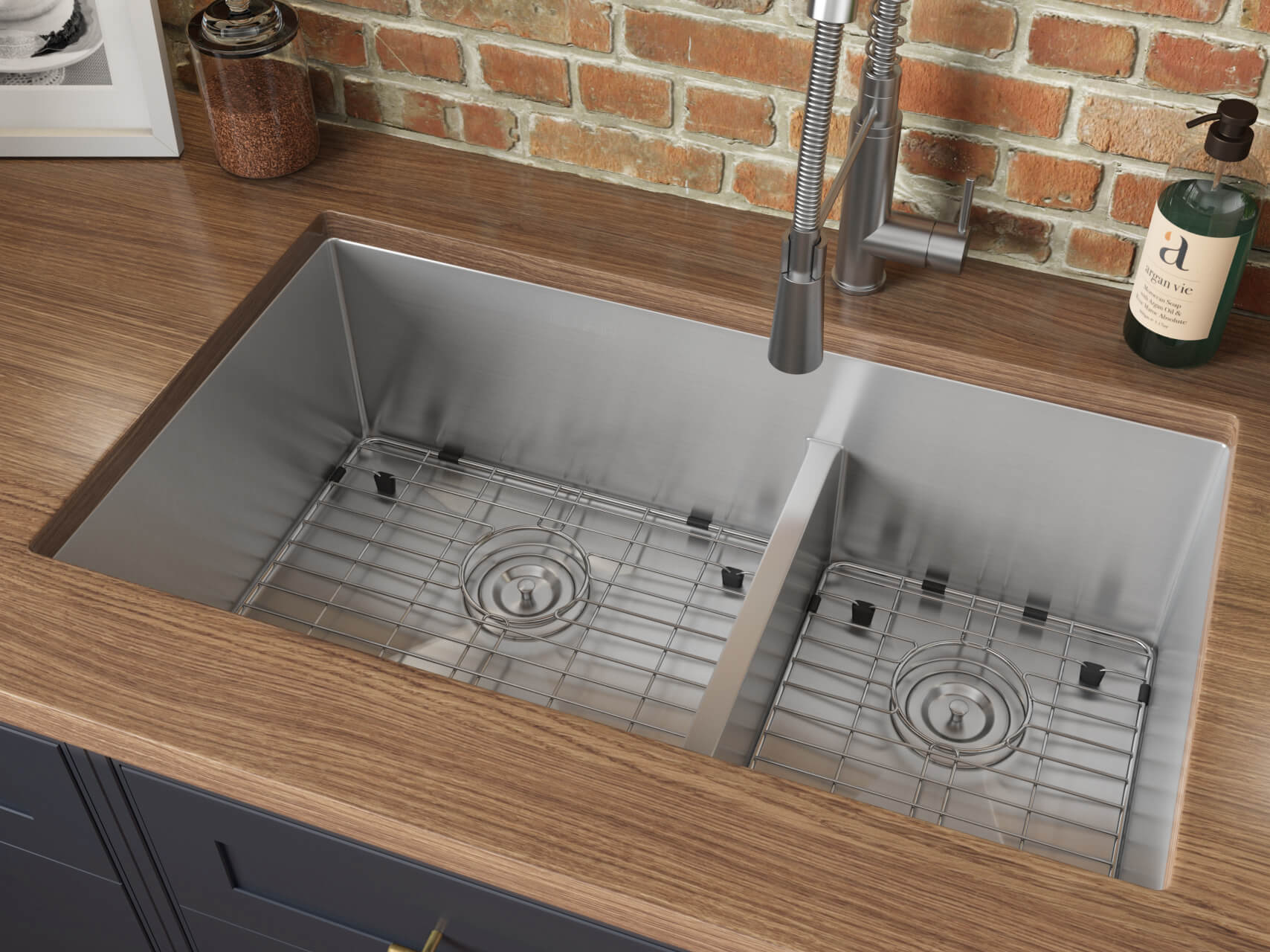 Choosing a thicker gauge for your kitchen sink
comes with a variety of benefits. First and foremost, thicker steel is more resistant to dents and dings, making it a practical choice for a heavily used area like the kitchen. It also tends to have better sound absorption, reducing the noise of dishes and running water. Additionally, a thicker gauge provides more stability and prevents the sink from flexing, which can cause leaks and damage over time.
Choosing a thicker gauge for your kitchen sink
comes with a variety of benefits. First and foremost, thicker steel is more resistant to dents and dings, making it a practical choice for a heavily used area like the kitchen. It also tends to have better sound absorption, reducing the noise of dishes and running water. Additionally, a thicker gauge provides more stability and prevents the sink from flexing, which can cause leaks and damage over time.
Consider Your Usage and Budget
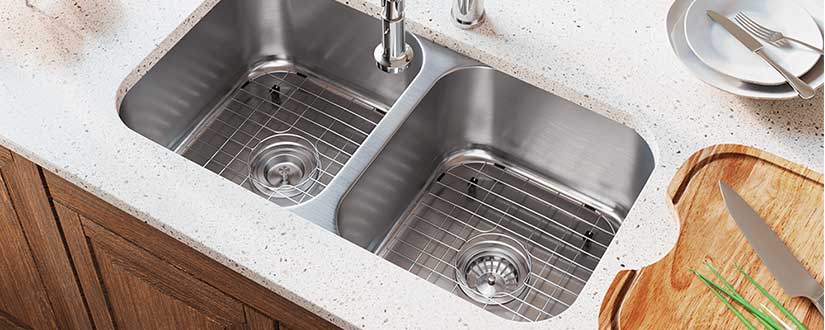 While a thicker gauge is generally recommended for kitchen sinks, it's important to consider your specific needs and budget. If you have a busy household and use your sink frequently, investing in a thicker gauge is a wise choice. However, if you have a smaller budget or your sink is used less often, a thinner gauge may still be a suitable option.
While a thicker gauge is generally recommended for kitchen sinks, it's important to consider your specific needs and budget. If you have a busy household and use your sink frequently, investing in a thicker gauge is a wise choice. However, if you have a smaller budget or your sink is used less often, a thinner gauge may still be a suitable option.
Other Factors to Consider
 Aside from the
gauge of steel
, there are other important factors to consider when choosing a kitchen sink. This includes the sink's size and shape, as well as its overall design and functionality. It's also worth noting that the gauge of steel is not the only determinant of a sink's quality. The grade of steel and the manufacturing process also play a significant role in the sink's durability and longevity.
Aside from the
gauge of steel
, there are other important factors to consider when choosing a kitchen sink. This includes the sink's size and shape, as well as its overall design and functionality. It's also worth noting that the gauge of steel is not the only determinant of a sink's quality. The grade of steel and the manufacturing process also play a significant role in the sink's durability and longevity.
Final Thoughts
 In conclusion, when it comes to choosing the right kitchen sink for your home, the
gauge of steel
is a crucial factor to consider. It not only affects the sink's durability and sound absorption, but it also plays a role in its overall appearance and functionality. By understanding the basics of gauge measurement and considering your specific usage and budget, you can make an informed decision and choose a sink that will serve you well for years to come.
In conclusion, when it comes to choosing the right kitchen sink for your home, the
gauge of steel
is a crucial factor to consider. It not only affects the sink's durability and sound absorption, but it also plays a role in its overall appearance and functionality. By understanding the basics of gauge measurement and considering your specific usage and budget, you can make an informed decision and choose a sink that will serve you well for years to come.
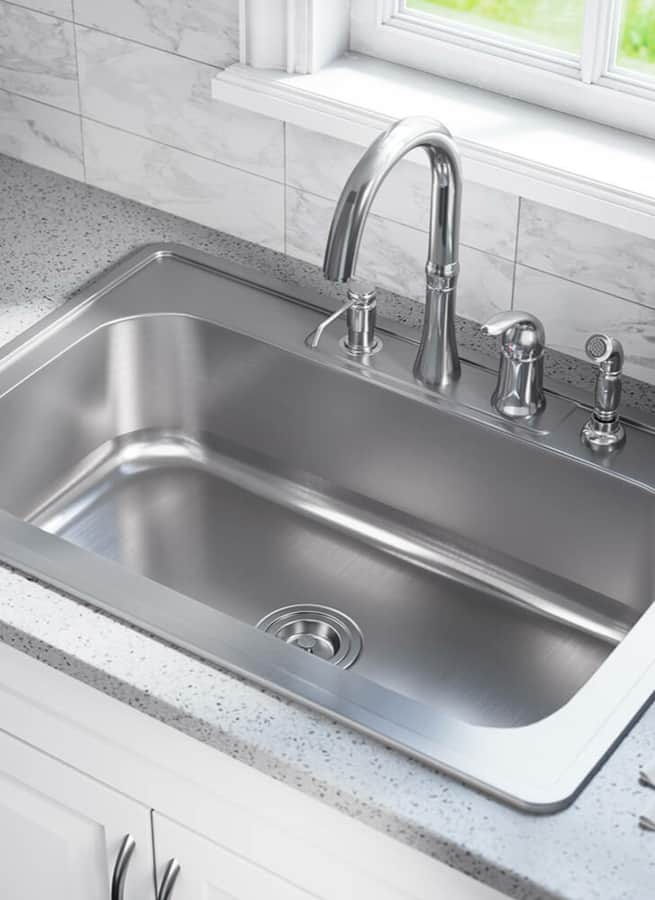


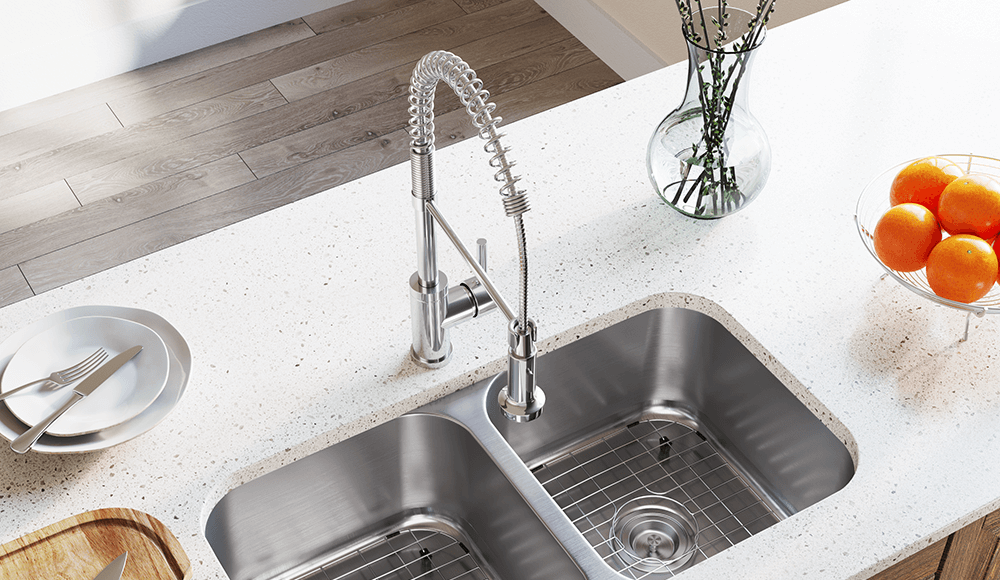


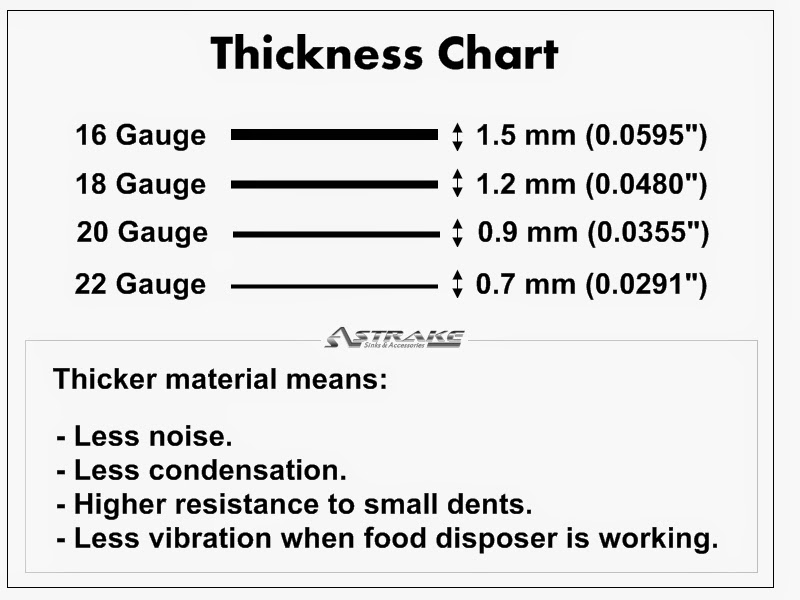








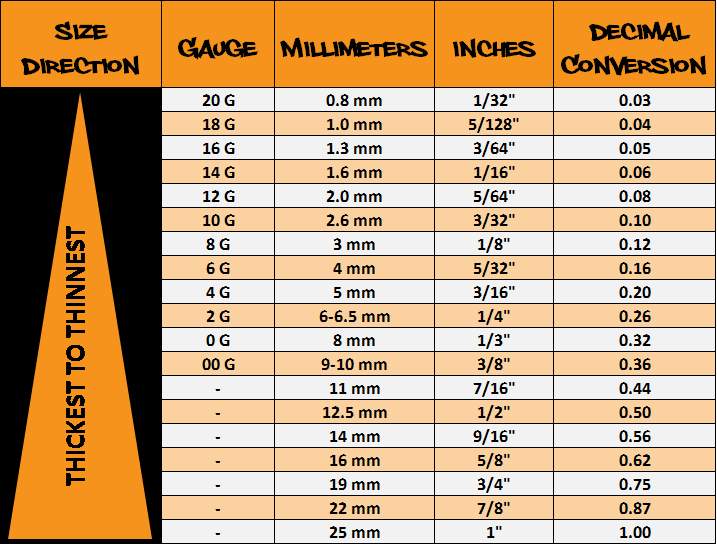




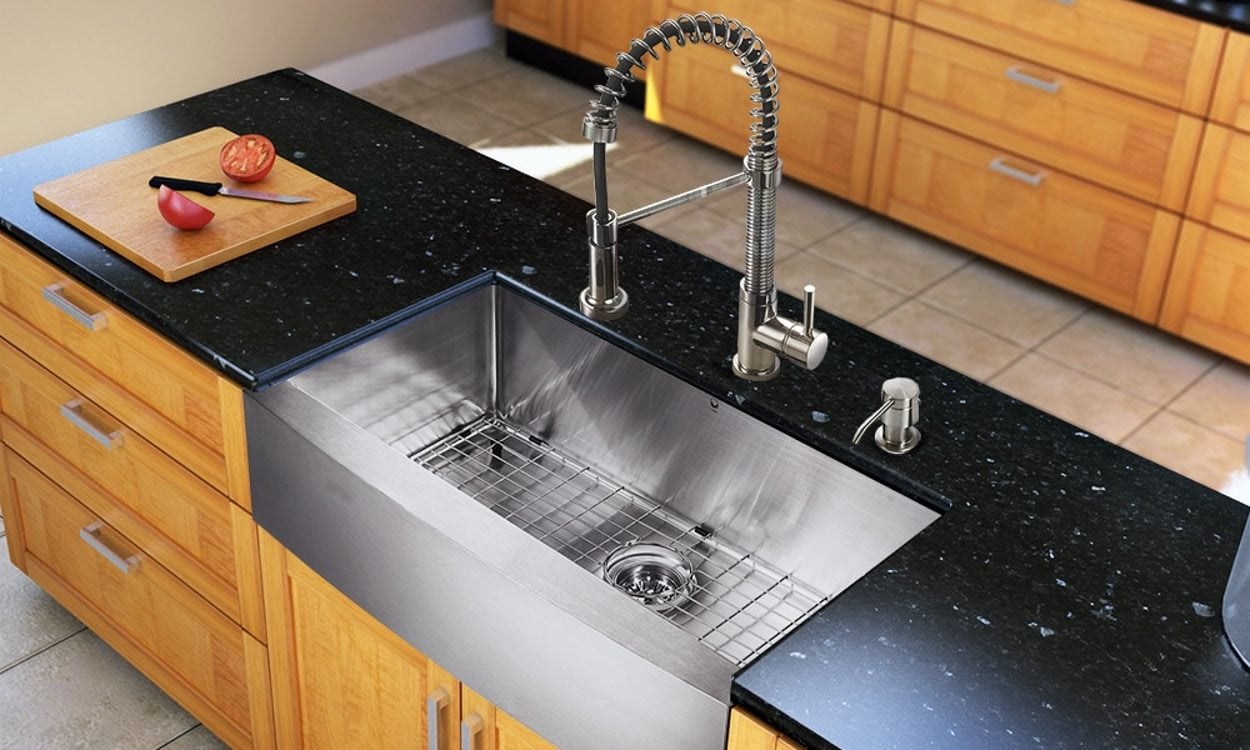
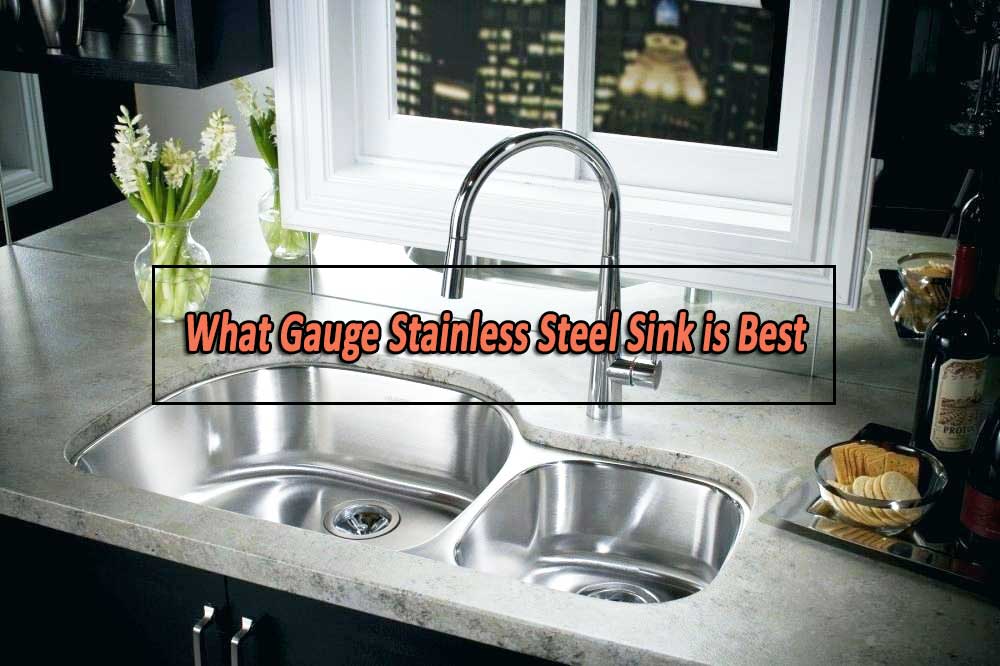

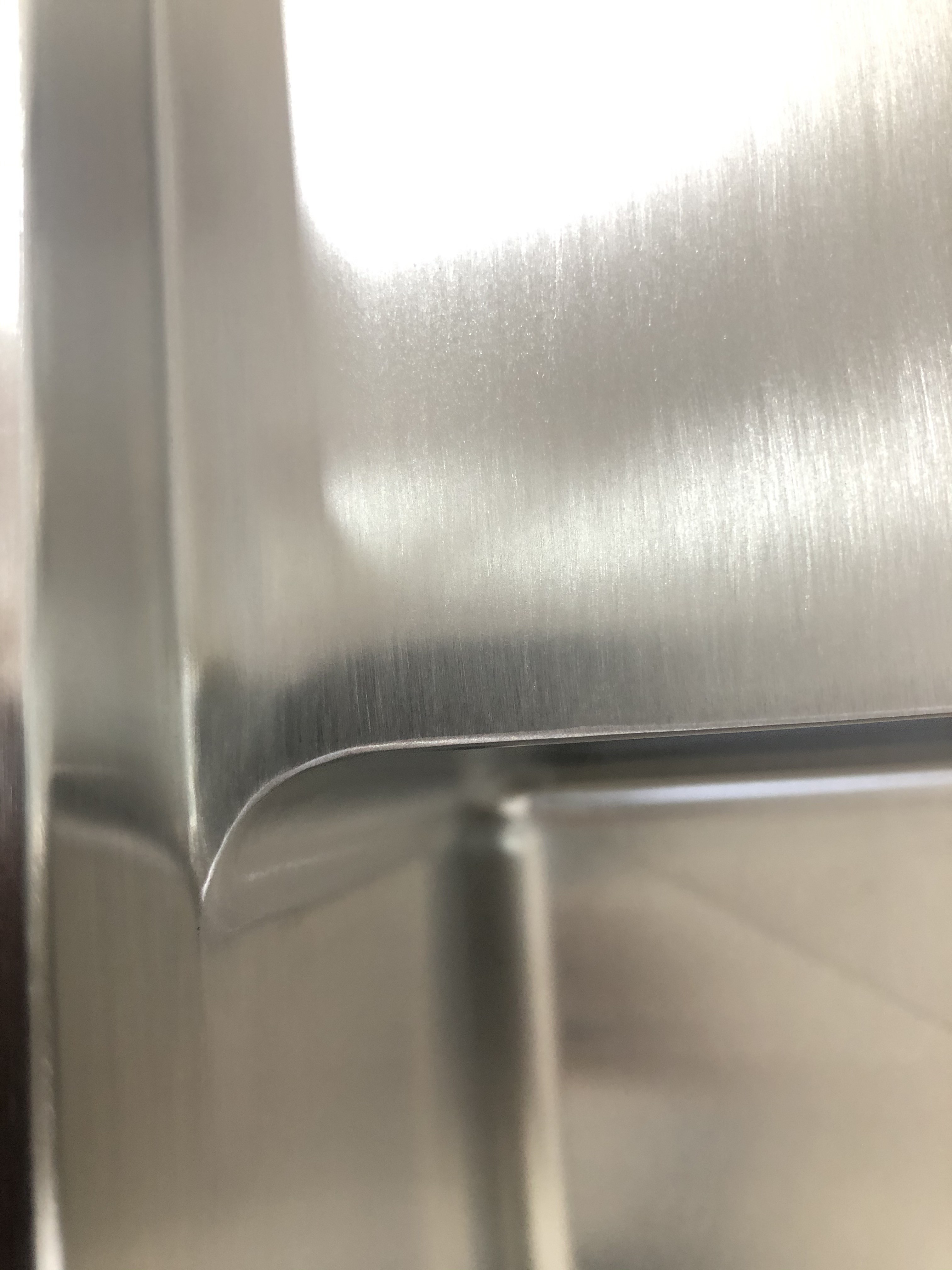








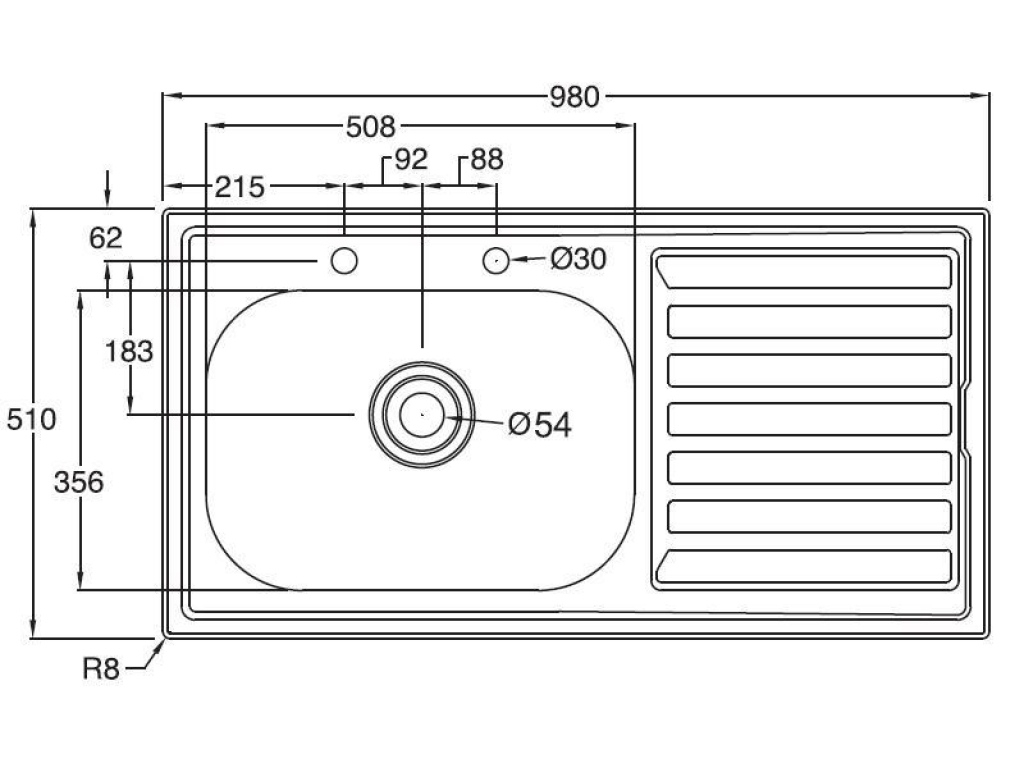

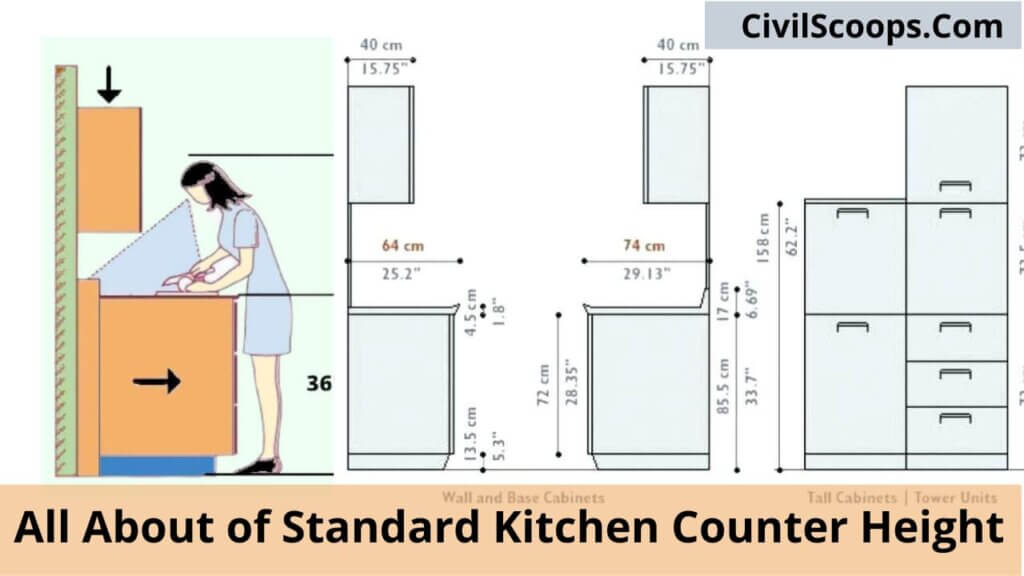





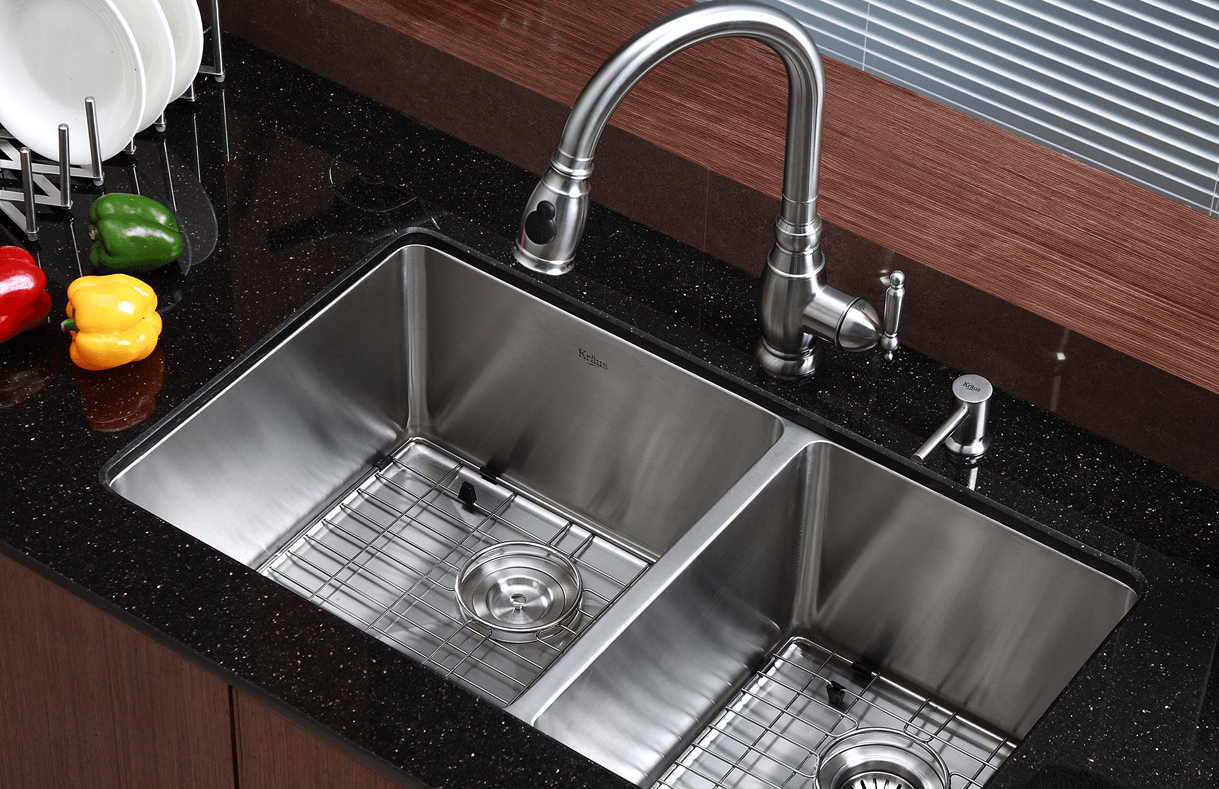















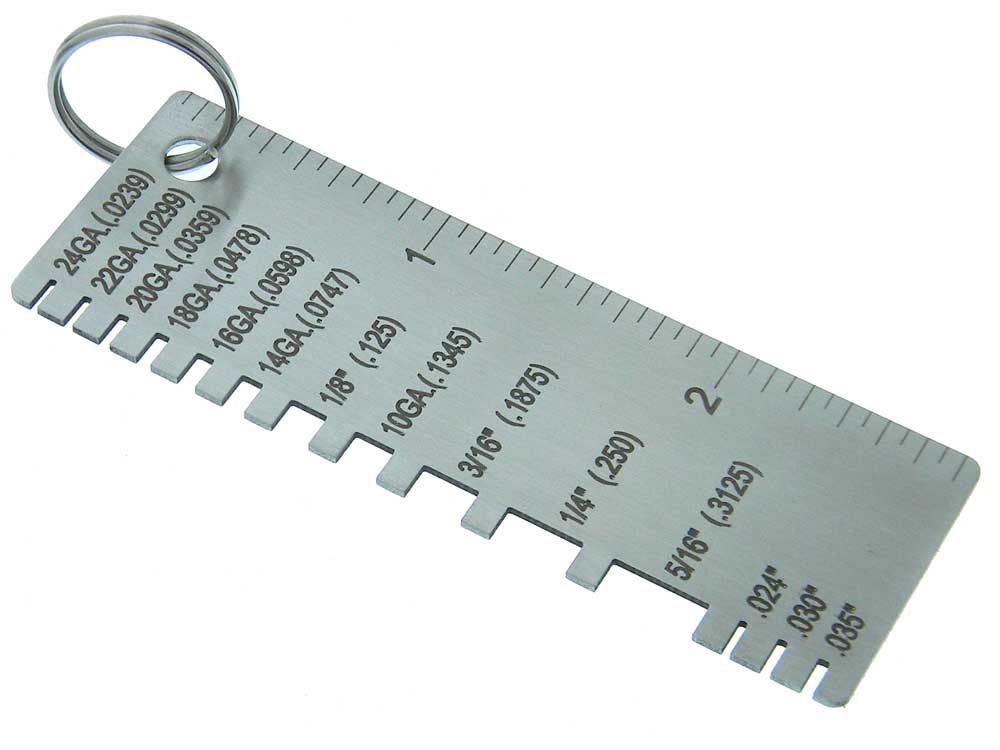



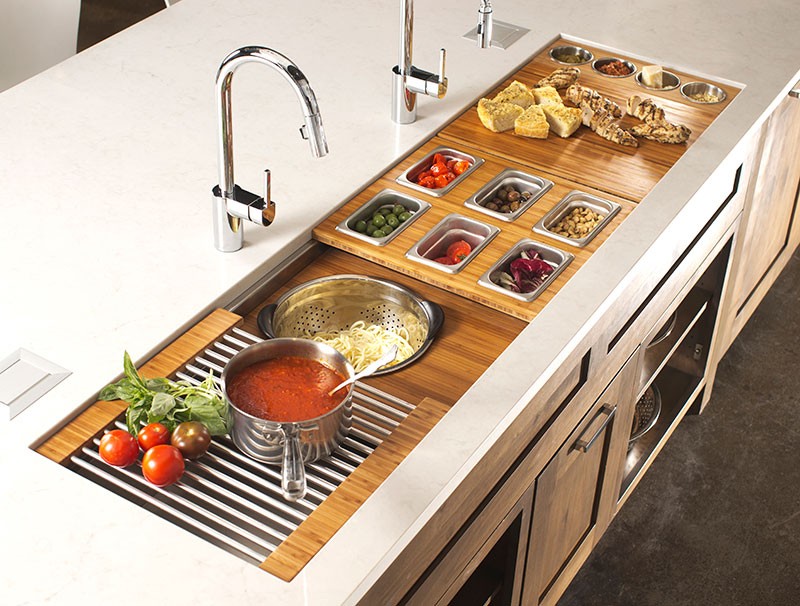

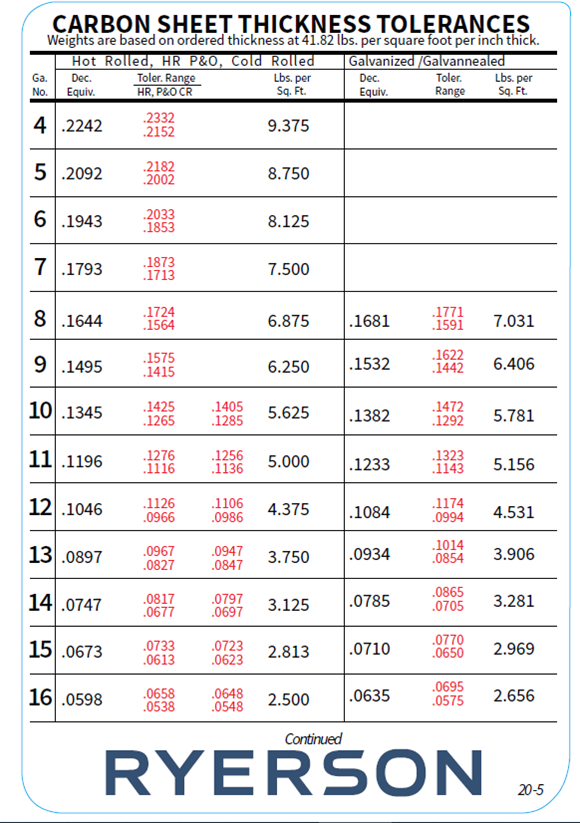
























:max_bytes(150000):strip_icc()/Basic-kitchen-sink-types-1821207_color_rev-0b539306b9ef4236a136624ad2a89a4c.jpg)


